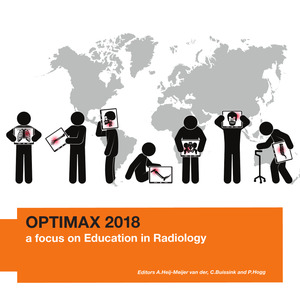Abstract Radiology during pregnancy: risks, radiation protection in medical practice, and communication with the patient. Authors: Harmen Bijwaard, Fleur Wit, Colinda Vroonland, has been accepted as POSTER at the 47th Annual Meeting of the European Radiation Research Society (ERRS 2022), which will be held from September 21st until eptember 24th, 2022 in Catania (Italy). We are very excited about the richness of the topics that are covered by the abstracts and look forward to seeing your poster soon! We inform you that on September 24th we are organizing just for our congress attendees the ETNA EXCURSION with alpine and volcanological guide. The departure will be by bus from Catania. All details about our SOCIAL EVENTS at: http://www.sirr2.it/errs2022/errs2022_social-events.html
DOCUMENT

Abstract—A survey about radiation protection in pediatric radiology was conducted among 22 general and seven children’s hospitals in the Netherlands. Questions concerned, for example, child protocols used for CT, fluoroscopy and x-ray imaging, number of images and scans made, radiation doses and measures taken to reduce these, special tools used for children, and quality assurance issues. The answers received from 27 hospitals indicate that radiation protection practices differ considerably between general and children’s hospitals but also between the respective general and children’s hospitals. It is recommended that hospitals consult each other to come up with more uniform best practices. Few hospitals were able to supply doses that can be compared to the national Diagnostic Reference Levels (DRLs). The ones that could be compared exceeded the DRLs in one in five cases, which is more than was expected beforehand.
LINK
This year, OPTIMAX was warmly welcomed by University College Dublin. For the sixth time students and teachers from Europe, South Africa, South America and Canada have come together enthusiastically to do research in the Radiography domain. As in previous years, there were several research groups consisting of PhD-, MSc- and BSc students and tutors from the OPTIMAX partner Universities or on invitation by partner Universities. OPTIMAX 2018 was partly funded by the partner Universities and partly by the participants.
DOCUMENT
